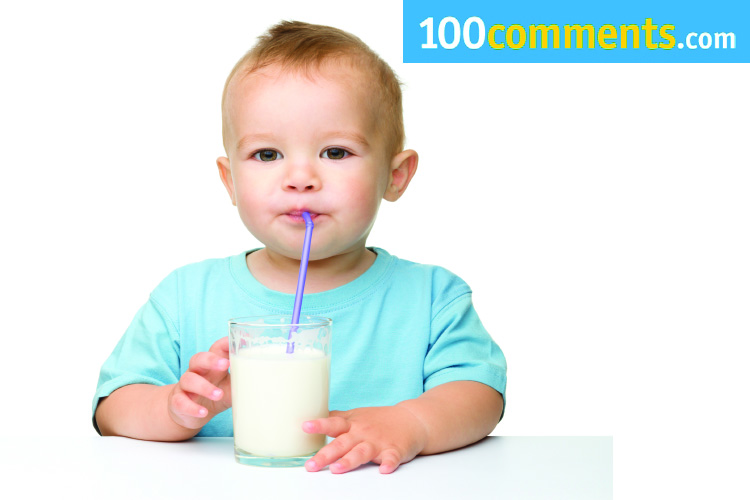After their little one’s first birthday, parents will notice that milk will begin to become less and less of a priority as their child starts to consume a wider variety of foods. However, should milk still remain in a toddler’s diet? Read on…
Milk is a good source of all-essential nutrients, including bone-building calcium. If you breast-feed, the World Health Organization and also our own Health Ministry recommend continuing until the age of two years. After the age of one though, a toddler on formula can switch to whole milk.
Table of Contents
How much milk should a toddler drink?
It’s a common sight to see toddlers between the age of one right up to three years going about their day with a bottle of milk in their mouth. Many parents, till this day, oblige their little ones’ request for milk, either in a bottle or via modern sippy cups at any time of the day, with the very best of intentions. After all, milk is a healthy choice for growing bodies and minds!
When it comes to obtaining essential nutrients through a varied diet, toddlers should consume no less than two cups of milk daily. Too much milk may prevent them from consuming other healthy foods or even prevent them from trying new foods.
A toddler’s calcium needs
Milk and other dairy products provide the best source of dietary calcium, essential for healthy bone growth. A 1-cup serving of milk supplies 300 milligrams of calcium; toddlers need around 500 milligrams per day. Yogurt and cheese as well as calcium-fortified foods such as orange juice can meet your toddler’s calcium needs as well as milk. Most children under the age of five get 70 percent of their calcium from milk.
Vitamins and Minerals in Milk
Milk contains a variety of nutrients necessary to sustain the growth and development of babies and toddlers and many of these nutritional needs carry on well into adulthood too.
Milk is rich in the following vitamins and minerals:
- Vitamin B12: This essential vitamin is only found in foods of animal origin and milk is one of them
- Calcium: Milk is not only one of the best dietary sources of calcium, but it’s calcium that is easily absorbed
- Riboflavin: Also called vitamin B2, riboflavin is found to be abundant in milk and dairy products
- Phosphorus: A mineral that plays an essential role in many biological processes and is found in all good dairy products
Casein & Whey proteins
Proteins in milk can be divided into two groups – casein proteins, which are not water-soluble, and whey proteins which are water soluble. Both these proteins are essential for growing bodies and are easily digested.
Casein forms about eighty percent of proteins in milk. It is made up of a group of different proteins where the most abundant one is called alpha-casein. Casein is important to the human body for its ability to increase the absorption of minerals, such as calcium and phosphorus. Whey protein is another family of proteins, accounting for 20% of the protein content in milk and is rich in amino acids such as leucine, isoleucine and valine.
Your little one needs fats!
Milk fat is one of the most complex of all natural fats, containing about 400 different types of fatty acids. Toddlers need fats for optimal neurological growth, so resist offering your toddler low-fat milk, skim milk or fat-free milk till the age of five, unless advised by your doctor.
Vitamin D
Fortified milk supplies vitamin D, which your toddler needs to help him absorb calcium. Toddlers who don’t get enough vitamin D can develop rickets, which is the thinning of the bones that can cause bowing and pain. Breast-fed babies who don’t take vitamin D supplements after the age of 6 months are at risk for vitamin D deficiency. Factors that contribute to vitamin D deficiency risk include:
- Being naturally dark-skinned
- Inadequate sunlight exposure
- Family history of deficient in vitamin D
Lactose intolerance in little ones
As unfortunate as it may sound, some toddlers can’t drink any milk due to milk allergy or lactose intolerance. Such toddlers can still meet their nutritional needs for dietary calcium and fats in other ways. A toddler with milk allergy or lactose intolerance can drink calcium-fortified soy milk or another alternative plant milk. Juices fortified with calcium can help meet your toddler’s calcium needs. Your doctor or a dietician will be able to help you with the best recommendations in alternative sources of nutrients missed out from milk.
















